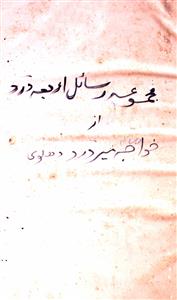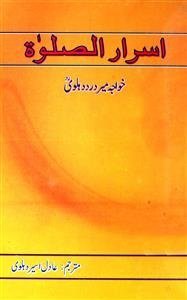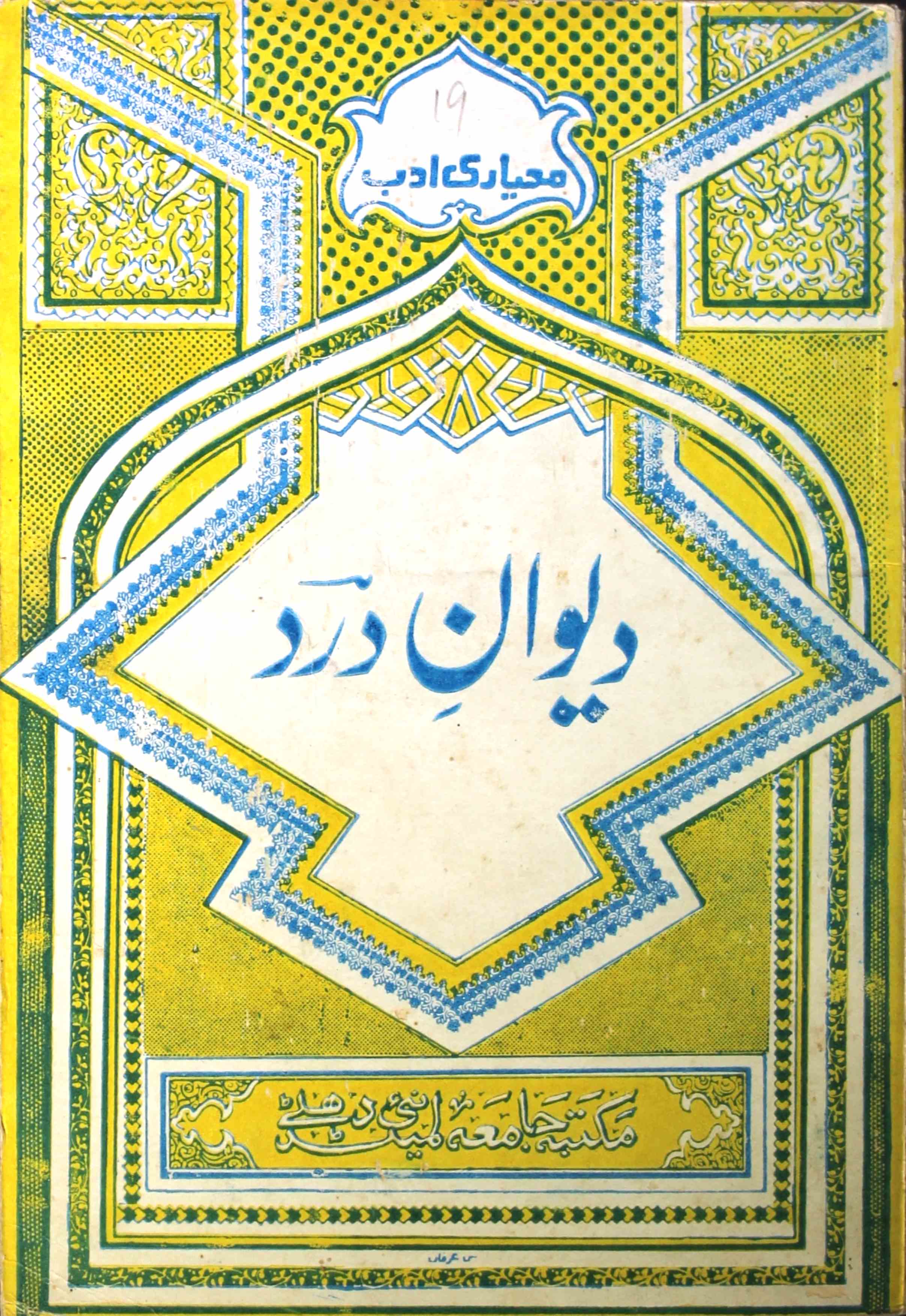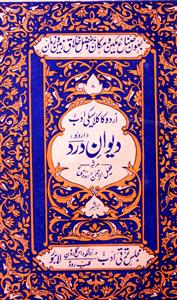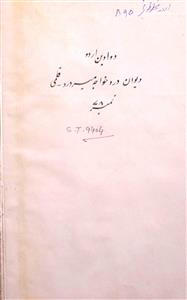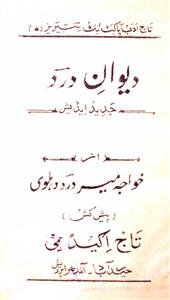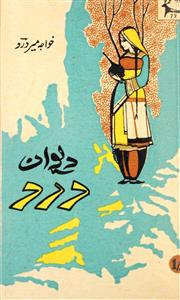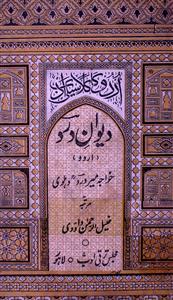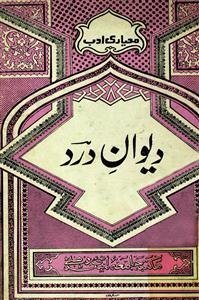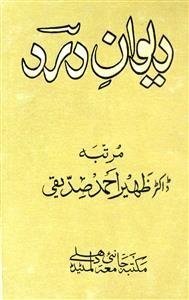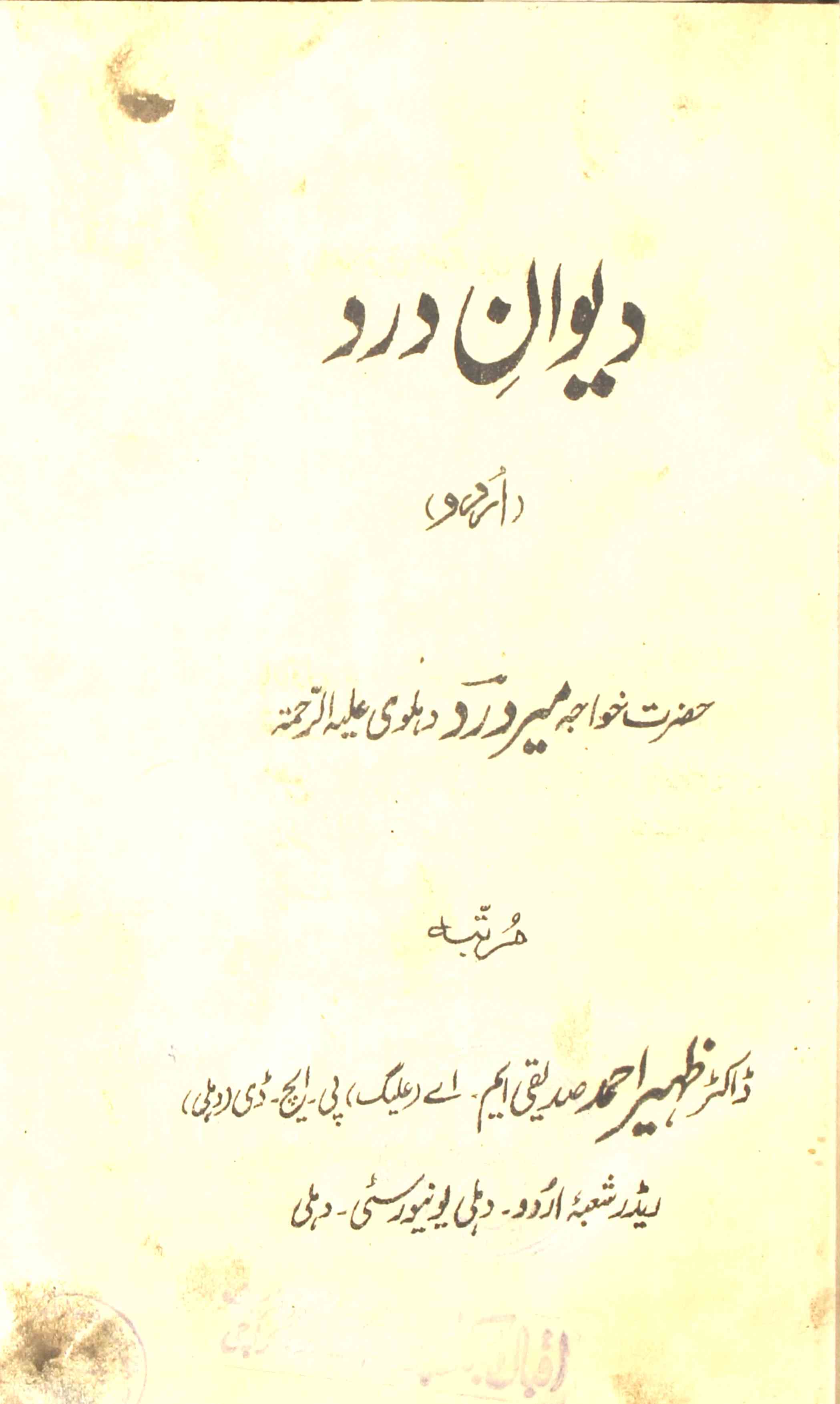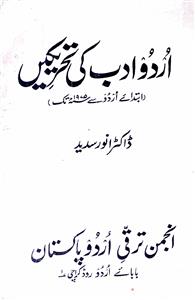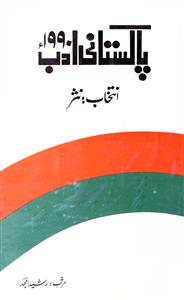 For any query/comment related to this ebook, please contact us at haidar.ali@rekhta.org
For any query/comment related to this ebook, please contact us at haidar.ali@rekhta.org
About The Book
خواجہ میر درد کو اردو زبان و ادب کا صوفی شاعر اور درویش جانا جاتا ہے اور اردو زبان و ادب میں ان کی شناخت ایک صوفی شاعر کی حیثیت سے ہے ۔ حالانکہ نہ ان کی شاعری اردو زبان کی شاعری تک محدود ہے اور نہ ہی ان کا تصوف ہندوستانی تصوف تک محدود ہے۔ بلکہ ان کی شاعری کی جڑیں فارسی شاعری سے ملتی ہیں اور جس طرح سے ان کا اردو دیوان تصوف کے حلقے میں معروف ہے اسی طرح سے ان کا فارسی دیوان بھی صوفیہ کے یہاں قدر و منزلت کی نظر سے دیکھا جاتا ہے ۔اور ان کا تصوف بھی عالم گیری تصوف ہے ۔ درد جس طرح سے ہندوستانی نام نہاد تصوف سے بھاگتے ہوئے نظر آتے ہیں اسی طرح سے وہ عالمی تصوف کی بے ترتیبی سے بھی بھاگتے ہوئے نظر آتے ہیں ۔ انہوں نے جس طرح سے اردو فارسی زبان میں دواوین چھوڑے ہیں اسی طرح سے انہوں نے فارسی زبان میں کئی رسالے تحریر کئے جو موضوع کے اعتبار سے متصوفانہ خیالات کے حامل ہیں ۔ اس مجموعہ میں ان کے چار رسالے شامل ہیں جو انہوں نے وقتا فوقتا تحریر کئے ہیں۔ سب سے پہلے" نالہ درد" کو اس انتخاب میں جگہ دی گئی ہے جو 1310 ھ میں تحریر کیا گیا ہے ۔یہ رسالہ نالہ کے عنوان سے بیان کیا گیا ہے جس میں متصوفانہ خیالات کو بہت ہی خوبصورتی سے پیش کیا گیا ہے اور جابجا انہوں نے اپنے اشعار کی پیوندکاری کی ہے جو نثر کو اور بھی خوبصورت بناتا ہے۔ اس کے بعد " آہ سرد " کے نام سے رسالہ کو جگہ ملی ہے ۔ یہ رسالہ بھی درد کے متصوفانہ خیالات کی ترجمانی کرتا ہے ۔ پھر " درد دل " کے عنوان کا رسالہ شامل ہے جس میں بھی انہوں نے اپنے متصوفانہ خیالات کی وضاحت کی ہے۔ ان کا چوتھا رسالہ " شمع محفل " کے عنوان سے درج کیا گیا ہے اور اس میں بھی درد کے متصوفانہ خیالات بیان کئے گئے ہیں ۔ ان چاروں رسالوں میں یہ بات عام ہے کہ جب بھی وہ کوئی نئی بات شروع کرتے ہیں تو رسالے کے نام کے پہلے الفاظ سے بات کو شروع کرتے ہیں ۔ اس کے علاوہ بھی انہوں نے دیگر رسائل تحریر کئے ہیں جن میں نماز پر ایک رسالہ ہے اور دوسرا "علم الکتاب" کے نام سے ہے جو کہ ایک ضخیم کتاب ہے۔
About The Author
Khwaja Mir Dard (1721-1785) was born Syed Khwaja in Delhi. His ancestors had migrated from Bukhara to India but his father who worked as a royal mansabdar relinquished his position to lead the life of a Sufi. Dard received his comprehensive religious education under the supervision of his father. He spent all his life in Delhi and remained a witness to the invasions of Nadir Shah and Ahmed Shah Abdali, as also the Maratha conquest of North-west India. He was, however, keenly interested in music, both vocal and instrumental and he held soirees of music, and mastered the art to perfection. As a Sufi, he was respected equally by the royalty and the nobility. This Sufi poet and theologian of the 18th Century Delhi is an important representative of the Naqshbandi, Mujaddidi lineage of Sufism. He is also known as the leader and theoretician of the Muhammadi path because he fashioned himself in the image of the Muhammad, the last prophet of Islam.
Dard had mastery over the Arabic, Persian, and Urdu languages. His close reading of the holy Qur’an, Traditions of the prophet, jurisprudence, and religious literature, made their mark on his poetry. His expertise in music further defined the tone and tenor of poetic expression. Effortless in his expression and direct in his addresses, he emerged as a renowned mystic poet, both in Persian and in Urdu. He was, by turn, an impassioned advocate for poetry and humble apologist for art. He considered poetry merely as one talent among the many talents of mankind. Poetry, to him, was inspired speech addressed to both the human and the divine. He differentiated between two types of speech, or kalaam, one of them being internal, or nafsi, and the other being verbal, or lafzi. He believed that a poet negotiates between two types of speech: the external, or zaahiri; and the internal, or batini. This reflection on language, speech, and expression underline the modes of Dard’s poetic apprehension and expression. He has to his credit a collection of Urdu ghazals, a Persian Divaan, a prose discourse called Ilm-ul Kitaab, a compilation of mystical sayings called Chahaar Risaala, and a book on the Muhammadi path.
 For any query/comment related to this ebook, please contact us at haidar.ali@rekhta.org
For any query/comment related to this ebook, please contact us at haidar.ali@rekhta.org
Write a Review
Jashn-e-Rekhta | 8-9-10 December 2023 - Major Dhyan Chand National Stadium, Near India Gate - New Delhi
GET YOUR PASS